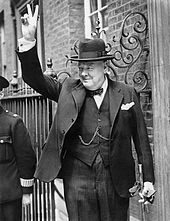What do you think?
Rate this book


An engrossing account of how Britain became the base of operations for the exiled leaders of Europe in their desperate struggle to reclaim their continent from Hitler.
When the Nazi blitzkrieg rolled over continental Europe in the early days of World War II, the city of London became a refuge for the governments and armed forces of six occupied nations — Belgium, Holland, Luxembourg, Norway, Czechoslovakia, and Poland — who escaped there to continue the fight. So, too, did General Charles de Gaulle, the self- appointed representative of free France. As the only European democracy still holding out against Hitler, Britain became known to occupied countries as ‘Last Hope Island’.
In this epic, character-driven narrative, acclaimed historian and New York Times–bestselling author Lynne Olson takes us back to those perilous days when the British and their European guests joined forces to combat the mightiest military force in history and restore order to a broken continent.
576 pages, Hardcover
First published April 25, 2017
